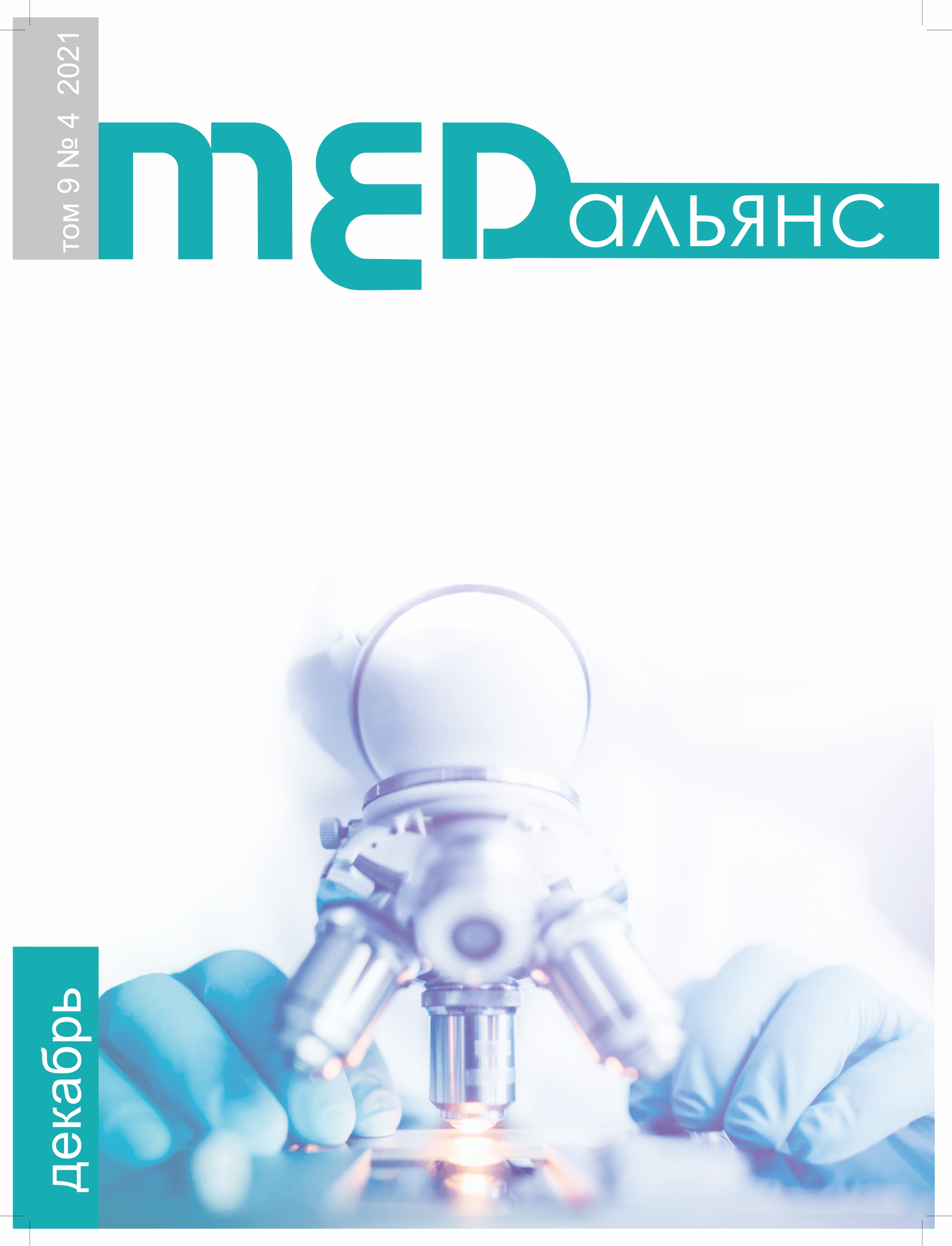Abstract
Objective. To evaluate the levels of lipopolysaccharidebinding protein, presepsin and systemic inflammation
parameters in patients with SARS-CoV-2-virusinduced lung disease and overweight or obesity were studied.
Methods. Fifty-five patients with PCR-positive SARSCoV-2, age 44–70 years, hospitalized to infectious disease wards were examined. Patients were divided into 3 groups: Group 1 (n=10) — patients with normal body mass index (BMI), Group 2 (n=19)— patients with excess body weight (BMI >25 kg/m2), Group 3 (n=26) — patients with grade 1 obesity (BMI >30 kg/m2). A control group (n=20) was also selected. Levels of lipopolysaccharide-binding protein, presepsin, ferritin, and C-reactive protein in peripheral blood were tested.
Findings.In all clinical groups of patients with new coronavirus infection who were admitted for inpatient treatment, a significant increase in all the studied parameters compared to the control group was detected. The highest
LBP and CRP values were registered in the group of patients suffering from 1st degree obesity. Presepsin and ferritin indices did not differ in the obese or overweight groups (p>0.05), but were significantly higher compared to the 1st group and the control group (p<0.05).
Conclusions. Тhese results suggest that overweight and obesity lead to increased levels of circulating endotoxin as well as persistent systemic inflammation in patients with SARS-CoV-2 infection during the acute period of the disease.

